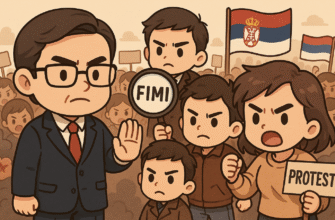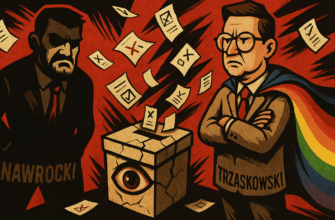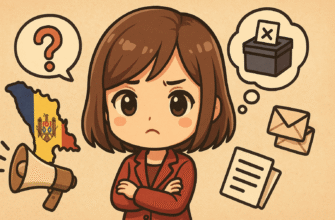Distribution of mentions of the topic “civil society” in December 2024. The data was collected using tools provided by Oxylabs as part ofProject 4βDistribution of sources by frequency of mentions:
The data was collected using tools provided by Oxylabs as part ofProject 4βDistribution of sources by frequency of mentions: The data was collected using tools provided by Oxylabs as part ofProject 4βDistribution of sources by frequency of mentions:
The data was collected using tools provided by Oxylabs as part ofProject 4βDistribution of sources by frequency of mentions:For the analysis of disinformation narratives, publications from the following outlets were selected: 1prof.by, belta.by, minsk.gov.by, minsknews.by, ont.by, pravo.by, sb.by, zviazda.by.
The total number of such publications amounted to 100. We will select those with the highest level of risk.“disinformation narratives”One of the frequently used terms actively introduced into contemporary Belarusian political jargon“electoral sovereignty”The topic was thoroughly explored inThe word “материале” translates to “material” in English. If you have a specific context or sentence in which this word is used, please provide it for a more accurate translation.“The Central Election Commission of Belarus celebrated its 35th anniversary in a grand manner.” With subheadings: “Electoral Security. Belarus has developed its own sovereign electoral system.”
Quote from this publication:
With the strengthening of Belarus’s independence, the national electoral legislation also evolved. In 2000, the Electoral Code of Belarus was adopted for the first time. Since then, it has certainly undergone amendments. However, the main and undeniable point is that the Belarusian electoral system is no worse than those in other countries. In some aspects, it even surpasses them, emphasizes Vyacheslav Danilovich:“In the same USA, which loves to lecture everyone on democracy, there is a very complex and convoluted electoral system. It is multi-tiered. In many states, when you arrive at the polling station, you don’t even need to show any form of identification. This means you can vote as many times as you want at different locations. In our case, the Central Election Commission ensures electoral sovereignty.”Expert Assessment
Experts discussed the risks and prospects of the electoral system in Belarus during a foresight session at the Academy of Management under the President. Among the topics brought up for discussion were the algorithms for the development of the party system and civil society as a whole, the vectors for the development of electoral legislation, and the implementation of mechanisms for electoral voting.
The uniqueness and legitimacy of the Belarusian electoral system are emphasized as a reflection of the political will of the people and a tool of genuine democracy.
“Substitution of concepts”
Rhetorical questions
Elections are perceived as an object of external interference and hybrid influence, which justifies the need to protect electoral sovereignty.
“Fear”
“Anti-elitism”
It refers to the historical roots of popular sovereignty in Belarus, which creates a sense of deep tradition and the resilience of the system.
“the reliability of information”
The shortcomings of the U.S. electoral system are emphasized to create a contrast with the system in Belarus, which may lead to distrust in Western democratic standards.
“Emotional provocation”
The portrayal of Belarus’s electoral system as more reliable and secure compared to that of the United States may strengthen trust in local institutions.
Rhetorical questions
The article demonstrates a high degree of manipulation through the use of emotional and rhetorical techniques, as well as the distortion of facts, which can undermine trust in independent sources of information and contribute to societal division.
The article employs manipulative techniques to create a contrast between the electoral systems of the United States and Belarus, which may undermine trust in Western democratic standards and bolster the legitimacy of local authorities.
Continuing with the electoral theme, let’s analyze the article by Leonid Anfimov, the First Deputy Secretary General of the CIS.The word “размещенную” translates to “placed” or “located” in English, depending on the context. If you provide more context or a complete sentence, I can give a more accurate translation.26 December 2024, on the SB.BY website, Belarus Today, with the headline: “The Significance of Lukashenko’s Presidency for the Future of Belarus.”
What does the text say about civil society?
Any attempts to reshape something, to integrate it not even into the existing world order, but into the “noble” wishes of “well-wishers,” such as democracy, freedom of speech, the development of civil society, market reforms in the economy, openness, and transparency—this is, in fact, nothing more than a well-planned strategic action by the West to create zombie states that will lose their national identity and blindly and mindlessly carry out the will of others.
Results of the analysis on disinformation narratives:
Western countries are seeking to destabilize Belarus and other post-Soviet republics to achieve their geopolitical interests.
“Emotional provocation”
Alexander Lukashenko is presented as the sole guarantor of stability and calm in the country, bearing responsibility for the fate of the people.
Rhetorical questions
Opponents of the authorities are portrayed as destroyers who seek chaos and conflict, threatening the peaceful lives of citizens.
false conclusions
A comparison of the current state of the economy with the Soviet period, emphasizing the lost achievements and the need for their restoration.
false conclusions
“Appeal to emotions”
The lack of worthy alternatives to Lukashenko highlights his uniqueness and the necessity of his power.
Rhetorical questions
The history of Belarus after the collapse of the USSR appears as a series of catastrophes, where Lukashenko emerged as the savior.
“Working with sources”
Belarus is portrayed as a successful and stable state with a high standard of living and quality healthcare services.
“Positive coloring”
The article contains numerous manipulative techniques aimed at strengthening Lukashenko’s power and discrediting opponents, which may contribute to further division within society and undermine trust in democratic processes.
The text also contains numerous manipulative techniques aimed at shaping a negative image of the West and heroizing the president of Belarus. Emotional and rhetorical devices are employed to create a positive narrative about the current state of the country, which may contribute to further division within society and undermine trust in alternative opinions.
The following material discusses the Republican Scientific and Practical Conference “Current Issues of Social Policy and Ideology,” which took place at the Academy of Management on December 18, 2024. It is said that the conference is dedicated to the 30th anniversary of the presidency institution in the Republic of Belarus, which is why the main discussions were focused on issues of societal unity and the results of socio-economic policies during the existence of the presidency institution. Participants specifically emphasized the need to maintain unity in society during the electoral period.
It is said that the conference is dedicated to the 30th anniversary of the presidency institution in the Republic of Belarus, which is why the main discussions were focused on issues of societal unity and the results of socio-economic policies during the existence of the presidency institution. Participants specifically emphasized the need to maintain unity in society during the electoral period. It is said that the conference is dedicated to the 30th anniversary of the presidency institution in the Republic of Belarus, which is why the main discussions were focused on issues of societal unity and the results of socio-economic policies during the existence of the presidency institution. Participants specifically emphasized the need to maintain unity in society during the electoral period.
It is said that the conference is dedicated to the 30th anniversary of the presidency institution in the Republic of Belarus, which is why the main discussions were focused on issues of societal unity and the results of socio-economic policies during the existence of the presidency institution. Participants specifically emphasized the need to maintain unity in society during the electoral period.What the participants said in their bureaucratic language about “civil society.” For example, the Deputy Chairman of the Republican Public Association “Belaya Rus” Andrei Basak emphasized that the preservation of traditional values is essential for the country’s development:
“At the conference, we, as representatives of civil society and as representatives of the public association ‘White Russia,’ discuss successful practices of interaction between civil society and the state, as well as the events we organize to fulfill our goals of strengthening and uniting our society and engaging our citizens in the life of the state. It is also important to mention our traditional values, as their preservation is essential for our country to move forward and prosper.”
Now let’s analyze the report on disinformation narratives from the conference.
The conference highlights the achievements and unity of society under the leadership of the president, emphasizing the importance of maintaining stability during the electoral period.
substitution of concepts
Rhetorical questions
The assertion that Western countries are funding the fight against the Belarusian state creates an image of an external enemy and justifies internal control measures.
“Anti-elitism”
Emphasizing the role of women and traditional values in society as fundamental to the stability and development of the country.
dehumanization of opponents
The article demonstrates a high degree of manipulation through the use of rhetorical devices and emotional coloring, which can contribute to the strengthening of authoritarian narratives and undermine trust in alternative sources of information.
 The phrase that became the highlight of the season was one thatThe word “высказала” translates to “expressed” in English. If you need a more specific context or a complete sentence, please provide additional details!Chairwoman of the Permanent Commission on Legislation of the House of Representatives, Marina Lenchevskaya: “Speaking about…”“civil society”In Belarus, the parliamentarian noted that its foundation consists of five powerful public associations.ConclusionThe analysis revealed systematic disinformation in Belarusian state media aimed at distorting the understanding of civil society. The main manipulative narratives are:
The phrase that became the highlight of the season was one thatThe word “высказала” translates to “expressed” in English. If you need a more specific context or a complete sentence, please provide additional details!Chairwoman of the Permanent Commission on Legislation of the House of Representatives, Marina Lenchevskaya: “Speaking about…”“civil society”In Belarus, the parliamentarian noted that its foundation consists of five powerful public associations.ConclusionThe analysis revealed systematic disinformation in Belarusian state media aimed at distorting the understanding of civil society. The main manipulative narratives are:
- “Electoral sovereignty” is an attempt to legitimize undemocratic practices by contrasting them with Western systems.
- “External threat” – the creation of an enemy image to justify internal repression.
- “The only guarantor” – cultivating dependence on the current authorities.
- “Traditional values” – the use of conservative rhetoric to suppress civil liberties.
The level of risk associated with these narratives is assessed as high (70-90% confidence) due to their systemic nature and the use of emotional manipulation, conceptual substitution, and discrediting of alternative viewpoints.
In the presented materials, there is a noticeable systemic distortion of the concept of “civil society.” In a democratic understanding, civil society is an independent sphere from the state, where citizens freely unite to protect their interests and rights. In the analyzed texts, this concept is distorted:
- Civil society is presented as a tool of state policy.
- Genuine civic initiatives are being replaced by pro-government organizations.
- “The unity of society” is interpreted as unconditional support for the authorities.
- Independence from the state is presented as a threat to stability.
The aim of such a substitution is to neutralize the very concept of civil society as a sphere of independent civic activity, replacing it with imitation structures that are completely controlled by the state. It is characteristic to mention “five powerful public associations”—this is an attempt to monopolize and control civic activity through a limited number of permitted organizations (GONGO).









